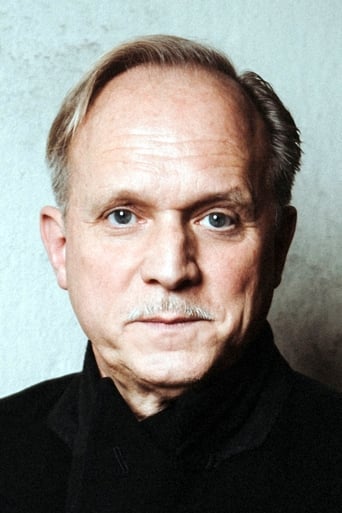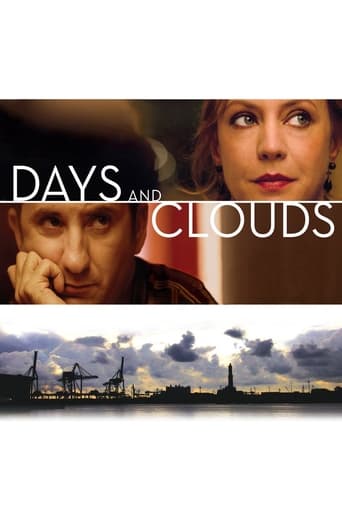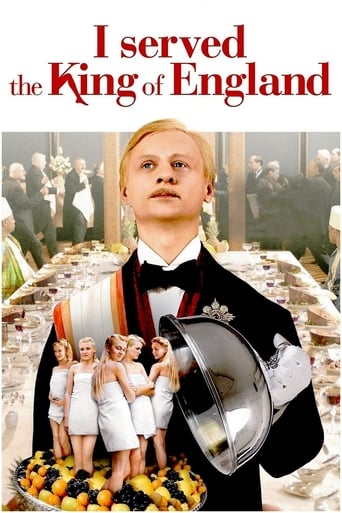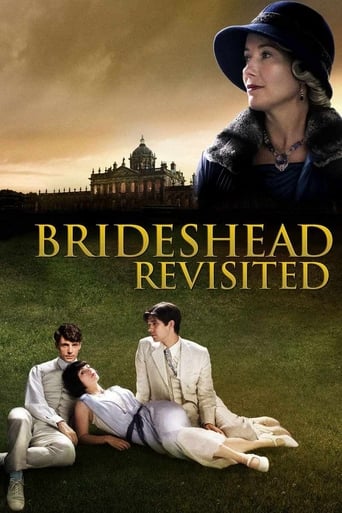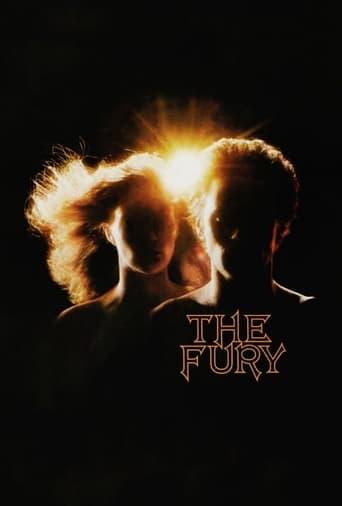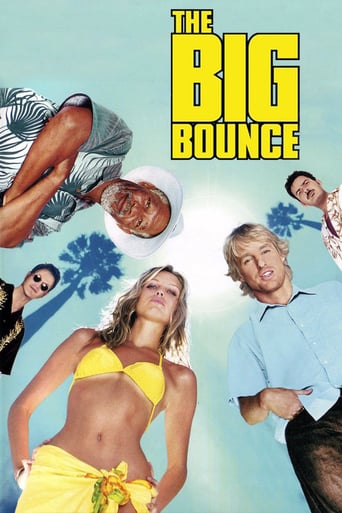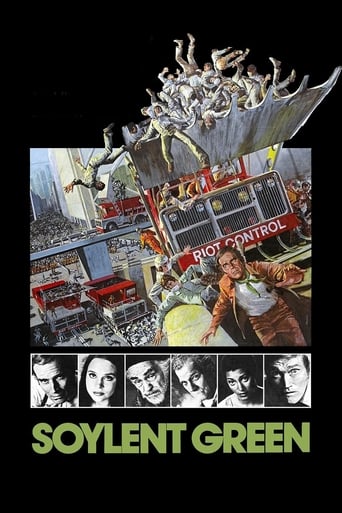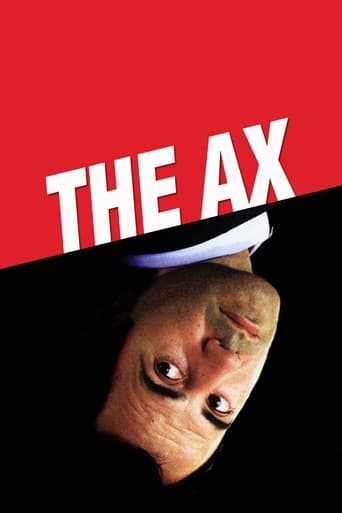
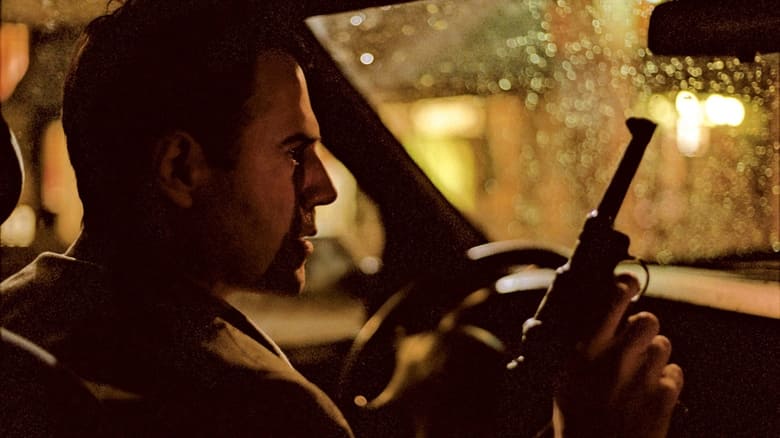
The Ax (2005)
A chemist loses his job to outsourcing. Two years later and still jobless, he hits on a solution: to genuinely eliminate his competition.
Watch Trailer
Cast
Similar titles
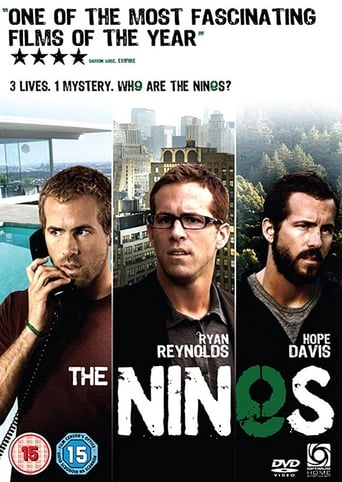
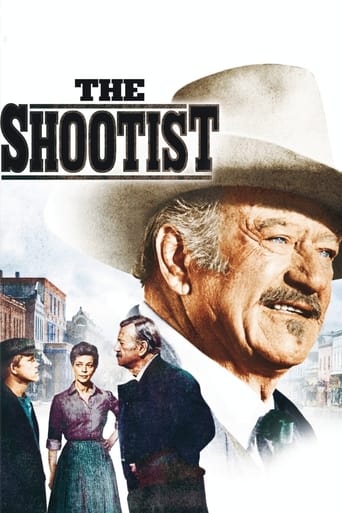
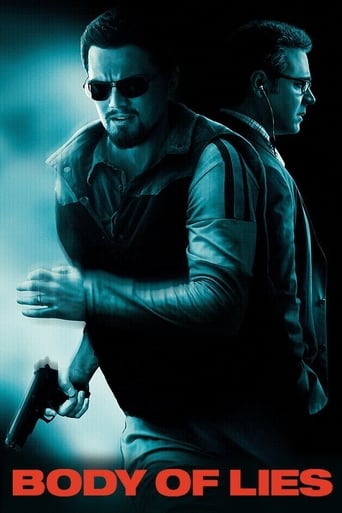
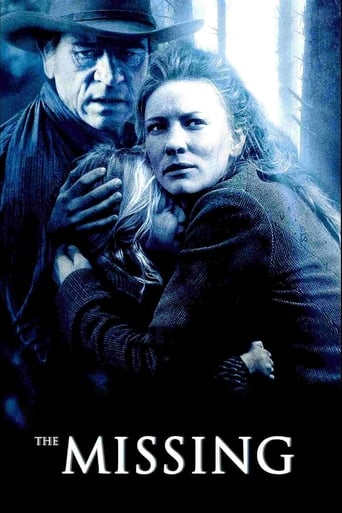
Reviews
After playing with our expectations, this turns out to be a very different sort of film.
The acting in this movie is really good.
This is a small, humorous movie in some ways, but it has a huge heart. What a nice experience.
It is an exhilarating, distressing, funny and profound film, with one of the more memorable film scores in years,
Costa Gavras has a reputation for very serious and very political thrillers. He first came to prominence 40 years ago with "Z", a film about a political assassination in his native Greece. Of his oeuvre since then I have seen and enjoyed "State of Siege, about the Tupamaros insurgency in Uruguay and "Missing", about the aftermath of the deposition of Salvador Allende in Chile (though the country is not actually named). This film, based on a 1997 novel by the prolific American crime writer Donald E Westlake, could be described as Costa Gravas lite, as it has many of the elements of black comedy.The protagonist, Bruno (Jose Garcia), has lost his well-paid job as a senior chemist at a paper manufacturing company owing to a corporate merger. Increasingly desperate and running out of money, he decides to eliminate his likely rivals for advertised positions in the same field. Bruno is no psychopath, murder is not easy for him, but he truly believes he is nothing without his job – he literally seeks Arcadia (earthly paradise) through his work since the job he is after is with the (fictitious) Arcadia paper company. Some of the best lines in the movie come from Bruno's encounters with his victims, two of whom, unaccountably, have English surnames (Hutchinson, Barnet) Some have suggested that there is an air of unreality in the story since Bruno would in real life be quickly detected. Virtually every hit is bungled in some way, he uses his own car and the same World War 2 handgun, and the police are on his trail. However, getting away with it, or at least not getting caught by the forces of law and order, is par for the course in this type of black comedy. Costa Gavras is obviously out to show the injustice of it all but he lays the blame on the system. Incidentally, if you find the ending mysterious have a look in the credits for the name of the character played by the lovely Vanessa Larre.While Bruno is out bumping off his rivals there is trouble on the home front. His teenage son has been caught shoplifting and Bruno returns to thwart the police investigation. His wife (Karin Viard) suspects Bruno might be having an affair, though since the story has been relocated to France from New England she is only mildly upset about the possibility, and they troop off to a marriage counselor. She is blissfully ignorant as to what Bruno is really up to.Jose Garcia reminds me of Kevin Spacey and he makes an effective deranged Everyman. The minor characters are well realised, particularly Ulrik Tukur as Hutchinson and Olivier Gourmet as the man whose job Bruno is after. Karin Viard is effective as the baffled wife, and Geordy Monfils filled the bill as their errant son.I also liked Olga Grumberg in a small but significant role as a contemptuous job interviewer.Costa Gavras has sugared the pill a bit here, but the film remains much stronger stuff, than, say, "Up in the Air", Jason Reitman's recent take on giving people the sack.
We are introduced to Bruno Davert as he is being recognized for his many years of service for a paper manufacturer. Little does Bruno know that soon he will be on the unemployment line because the company has decided to outsource the work to a Rumanian firm. Thus begins the story of a man's sudden descent into a crisis caused by the situation in most of the industrialized nations.Bruno devises a scheme to eliminate the possible competition that are looking for the same position he is after. For that purpose, he rents a mail box at the post office after he has placed a phony ad asking worthy candidates for the same position he covets. Bruno selects the five men and a manager that will have to be eliminated for his chances to be better. How he will go about it presents a problem: he wants to use an old pistol that belonged to his father in WWII.Life at home has begun to deteriorate. His loyal wife Marlene has taken part time jobs as a nurse in order to help in a household without steady income. Their married life also suffers because the strain Bruno is going through trying his hand as an assassin. Not content with that, the Daverts find out in the worse way their son has been stealing software programs and faces jail time if found out.Bruno goes through a killing spree eliminating the competitors. His resolve is almost shattered when he has a chance to meet with one of his would be victims that he has followed to a department store after setting up an interview he doesn't intend to keep with the man. In this unhappy man Bruno sees himself as in a mirror.As luck would have it, Bruno seems to get away with murder, but does he really? The last scene of the movie offers a puzzle that is left to the viewer to solve."Le Couperet", directed by Costa-Gavras, is a black comedy for our times. In it, we are taken to see first hand the indignities anyone has to face when corporations such as the one that employed Bruno Davert decide to take the business some place else, leaving the stranded employees to fend for themselves. The film is an adaptation of Donald Westlake's novel "The Ax". Mr. Westlake's books lend themselves for screen treatments such as the one Mr. Costa-Gavras has given the material. Some commentary to this forum suggests this movie to be a film noir, but to tell the truth, only the one sequence might fall on that category and nothing else. It's rather a black comedy of mystery and suspense in our humble opinion.The best thing in the film is Jose Garcia, an actor with a face that goes perfectly with his character. Mr. Garcia was a happy choice, as he never disappoints. Karin Viard appears as Marlene a wife at the end of her rope because her world is crashing on her. Ulrich Tukur and the excellent Oliver Gourmet are seen among the accomplished cast doing amazing work for the director."Le Couperet" is worth the prize of admission, or the DVD rental.
Costa -Gavras 's body of work does not lack in unity.Except for his two fist movies,which were thrillers , a romantic tale ("Clair de Femme" ) and a comedy that does not count ("Conseil de Famille' ) all that he has made display social and political concerns.From his early French classics ("Z "(He is alive) "L'Aveu" ,"Etat de Siège") to his American period ("Missing" "Betrayed" "Music Box" ) to his French comeback ("Amen" ) there is a cohesion which even André Cayatte ,his closest contender in the field,did not reach.And then "Le Couperet" .Don't be mistaken.It's not that much different from CG's previous efforts.Based on a Donald Westlake novel-a writer whose black humour was fierce- ,it contains lines Henri Jeanson or Michel Audiard would not have disowned.Comedy walks a fine line ,but it walks hand in hand with tragedy .You must watch it seriously to realize what heavy things CG is saying.While making his film verge on parody,he is also putting the French society in a less exalted light than we have been used to seeing it in.Suddenly our world seems frightening (the gas station man who hides a gun in his cash register,the icily impersonal female headhunter -I wish I had had my gun!-)It is really the society of the leave-you-behind and perhaps -I hope not - an omen of things to come in the future.I do not speak of the murders obviously.There are other ways of destroying a human being."When I saw them enter the restaurant ,the German ex-engineer says,I knew that I didn't stand the slightest chance ".The last picture has (and will be) widely talked about.Actually it reminds me of the ending of Mankiewicz's "All about Eve " when Phoebe tries Eve's crown .When you get to the top,there is nowhere to go but down.A film noir,a farce,a psychological drama ,a social satire and a movie where CG talks politics.One of his most accessible and one of his strongest works.At seventy plus,CG is as young as the reporter who bothered the fascists in "Z".He is abetted by Jose Garcia on top of his game.Like this?Try these....."Extension du domaine de la lutte" Philippe Harel 1998"L'adversaire" Nicole Garcia 2002 "Working girl" Mike Nichols 1988
As a fan of previous Costa-Gavras films, I was disappointed in this most recent effort. I was doubly dismayed that nearly everyone who reviewed it here seems to have missed the point entirely.Here's a sample from another IMDb user: "In USA (as far as I know), for instance, some unemployed people live on the streets or under the bridges." That's brilliant; thanks for the speculative remark about the USA of your imagination. "The Ax" asks us to feel sympathy for an upper-middle-class employee who's been fired from his job. He drives a nice car, has a nice family, and lives in a nice big house in the suburbs of Strasbourg.(He also doesn't have a cell phone and rarely checks e-mail, apparently, even though this film was made in 2005.) Others in his situation -- those whom he decides to kill -- are similarly privileged, likely supplemented by a generous severance package. One of our main character's victims refers to his maid and drives a Mercedes. So you're unemployed, looking for work, and generally despondent about life. Which is it: Are you going to actively seek a new job or will you whine about it while fooling yourself that maintaining your old, excessive way of life is still possible? The "critique" of this film -- that "Anglo-Saxon liberalism" is destroying people's livelihoods and creating an ever-more-consumeristic, violent, and oversexualized society, is precisely wrong. Yes, unemployment is a major problem in France, but you needn't look to the posh neighborhoods of Alsace-Lorraine to explore it. How about les banlieues surrounding Paris, where steep unemployment rates help to drive despair and actual violence among the immigrant youth? Yet the remedy to this very real problem -- loosening some of the restrictions of France's extremely rigid labor market -- is precisely what Costa-Gavras argues against, in the name of social justice. The bizarre and manufactured "class solidarity" among the upper-middle-class former paper employees in the film is a weird perversion of "Fight Club"'s blue-collar ethos, a mentality we're encouraged to agree with at the unspoken expense of the actual poor and downtrodden of French society.Give me a break. Costa-Gavras should stick to political intrigue, not economics. There are very few situations in which there is literally one job position that everyone is fighting for; are we honestly supposed to believe that the skills and experience gained from a high-level paper job are not applicable to other industries? And really, after several different versions of TV's "The Office," can we truly believe the cloying, earnest attitude of the main character, who apparently believes that his job in the paper industry is helping society? The film negates its own premise, unwittingly, by pointing out the horrible downsides to France's calcified labor market and blaming the results on capitalism instead of the very restrictions whose abolishment would solve many of the problems it raises. A further sin is the film's acknowledgment that underlying many of these (very real) French anxieties is a fear that Eastern Europeans stand poised to take their jobs. That's the price of both the free market and EU membership, and a symptom of general xenophobia.Beyond this philosophical disagreement, the film itself lazily relies on unnecessary first-person narration and a complete lack of subtlety. (Oh look, the TV's on! Guess the tube is just full of cussing Americans and their guns, slowly infiltrating our pristine society!) And finally, the film either takes place in a bizarre alternate reality in which cell phones and e-mail are not common, or the filmmaker actively chose to set the story 5-10 years in the past (why? because of the book?). If anything, the story would be more relevant in the present, when the choice between Sarkozy and Royal presents the stark choice embodied in "The Ax"'s narrative.


